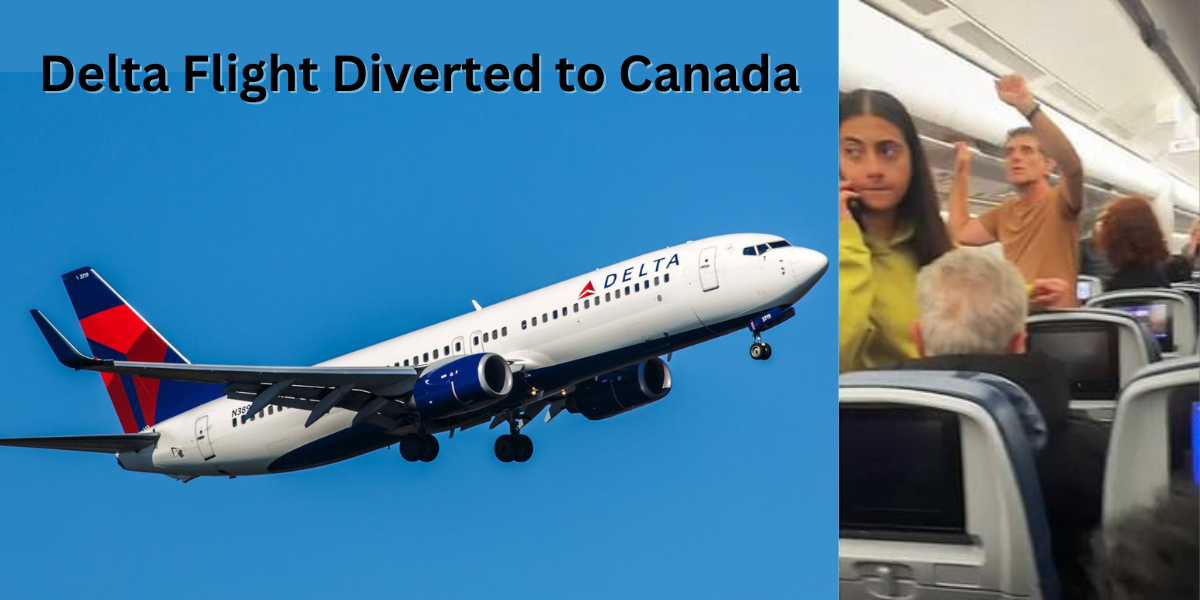In the world of air travel, unexpected events can disrupt the smooth flow of a journey, leading to unique and sometimes challenging experiences for passengers and crew alike. One such incident unfolded when a Delta flight, a route to its destination, was unexpectedly diverted to Canada. This unexpected twist brought about a series of events that tested the patience and resilience of everyone on board.
The Diversion:
Imagine the scene: passengers settled into their seats, flight attendants moving through the aisles, and the hum of the plane’s engines in the background. Everything seemed routine until an announcement from the cockpit informed everyone that the flight would be diverted to Canada due to unforeseen circumstances. For many passengers, this was a surprising and unplanned detour.
Handling the Situation:
Delta’s experienced crew quickly sprang into action, ensuring the safety and well-being of all passengers. While the specific reasons for the diversion may have varied – ranging from weather conditions to technical issues – the priority was to handle the situation with professionalism and care.
Passenger Reactions:
Understandably, passengers had mixed reactions to the unexpected change in plans. Some may have been frustrated by the delay, while others appreciated the airline’s commitment to safety. In situations like these, communication becomes paramount, and Delta’s crew likely provided updates to keep passengers informed about the status of the diversion, the estimated duration, and any necessary arrangements.
Canadian Hospitality:
As the flight touched down on Canadian soil, passengers were greeted by a new set of challenges – navigating an unfamiliar airport and potentially facing visa or entry requirements. However, the warmth of Canadian hospitality likely played a role in easing the transition. Airport staff and local authorities would have worked alongside the airline to ensure the well-being of passengers during their unexpected stopover.
Alternative Arrangements:
In the world of air travel, flexibility is key. Airlines are well-prepared to handle diversions and have contingency plans in place. Delta, like many reputable carriers, would have worked swiftly to make alternative arrangements for passengers, whether that involved providing accommodation, rebooking on subsequent flights, or offering other forms of assistance.
Lessons Learned:
While inconvenient, situations like these serve as reminders of the complexities inherent in air travel. Passengers and crew alike are called upon to adapt and cooperate in the face of unexpected challenges. Additionally, incidents such as this underscore the importance of safety measures and the dedication of airline professionals to ensuring the well-being of those in their care.
Conclusion:
The tale of a Delta flight diverted to Canada may have started as an ordinary journey but transformed into a unique and memorable experience for all involved. While diversions can be disruptive, the professionalism of the airline crew, the resilience of the passengers, and the hospitality of unexpected hosts collectively contribute to a story of adaptability and collaboration in the face of the unforeseen.
Share this content:

